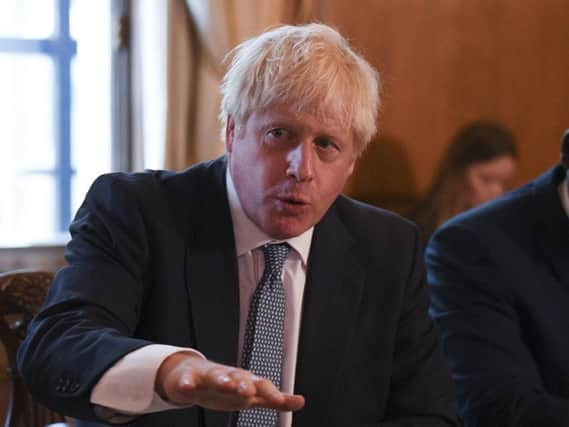Prime Minister Boris Johnson given recommendations to avoid 'calamitous' farming impacts of no-deal Brexit
This article contains affiliate links. We may earn a small commission on items purchased through this article, but that does not affect our editorial judgement.


In a letter, Mr Johnson is urged to listen to and act upon key recommendations to help protect farms from severe market restrictions, limited access to foreign labour and a damaging influx of cheaper food produced to lower standards than in the UK.
Advertisement
Hide AdAdvertisement
Hide AdAccording to the Country Land and Business Association (CLA) and the Tenant Farmers Association (TFA), leaving the EU without a deal on October 31 is “deeply undesirable” and the prospect merits a fresh look at the timing of any transition to a new British agricultural policy.
Existing arrangements, whereby £3.2bn is used to support British agriculture as part of the pan-European Common Agricultural Policy, should stay in place “until the economic realities of operating outside of the EU are clearer”, their letter states.
Tim Breitmeyer, the CLA’s president, said: “A no-deal scenario would damage the economies of both the UK and the EU and we encourage both sides to return to the negotiating table.
“Nevertheless, we cannot sit back and hope for the best. It is incumbent on business groups now to work with Government. If the Prime Minister is prepared to implement our recommendations, then the worst impacts of no-deal can at least be mitigated.”
Advertisement
Hide AdAdvertisement
Hide AdJames Gray, chairman of the TFA, acknowledged that Britain’s exit from the EU will bring opportunities for the farming industry, however he warned: “It would be reckless to leave the European Union without a deal and without a package of underpinning measures for the agricultural industry.
“Severe restrictions to export markets through both tariff and non-tariff barriers, cutting access to important migrant labour supplies and leaving us open to imports of food ingredients and products produced to standards banned at home would be calamitous for our country’s food and environmental security.”
They urged Mr Johnson to deliver on several key issues before the October deadline, including continued access to EU export markets for British food; “enhanced routes” to market at home, for example, through public procurement, and abroad, and a “transition support package” is for farmers whose income would be undermined by EU tariffs.
Import tariffs on food, announced in March, should be adjusted according to market conditions, imported agricultural inputs such as agro-chemicals and machinery must be tariff-free, and a commitment is needed that the Government will consider farming’s migrant labour needs.
Advertisement
Hide AdAdvertisement
Hide AdThe groups want regulation to ensure fair treatment of and fair returns to farmers, and new legislation banning food imports produced using techniques which would be banned in the UK.
Westminster promises
Farmers have so far been promised that they will “have the support they need” after Brexit, by the recently installed Prime Minister.
Speaking on a visit to a farm in South Wales last month, Boris Johnson said: “We have interventions that are aimed to support their (farmers’) incomes.
Advertisement
Hide AdAdvertisement
Hide Ad“What the Government is working on now with a great deal of energy and confidence is to ensure the farming sector is totally prepared.”
Meanwhile, new Environment Minister Theresa Villiers has insisted that the interests of food and farming businesses are being given “the very closest attention” ahead of October 31.